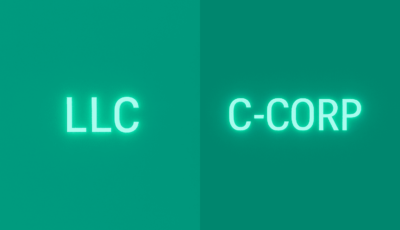
Ready to expand to the U.S.?
Book a call with me and my team! We support European startups with a smooth and compliant U.S. market entry – from setting up your Delaware C-Corp to reviewing your commercial contracts. With our legal expertise and hands-on experience as founders and in-house counsel, we’ll help you avoid common pitfalls and scale with confidence.
Armin Kaiser, Head of U.S. Expansion Expert & Managing Associate @LEXR
Expanding your business into the U.S. can be a transformative step toward global success. It offers vast opportunities with its large consumer base, innovation-driven economy, and vibrant startup and investor ecosystem. However, its complex legal and regulatory landscape demands thoughtful planning to ensure a smooth market entry.
A business may have differing goals and objectives to cross the Atlantic. You may want to simply explore the market, secure a foothold to serve a key client, or aim for long-term growth and funding opportunities. What is and is not the correct strategy depends on your underlying goals, and choosing the right approach is critical. This guide unpacks the key initial considerations and provides a high-level overview of what you should be thinking about when planning your market entry.
Choosing the Right Path for Your Business
Every company’s U.S. expansion journey is unique, and the structure you choose should align with your business goals and risk appetite. Here’s how to navigate your options:
Testing the U.S. Market: Pros and Cons of a Branch Office
If you’re not ready for a full-scale launch, starting small can minimize risk. Setting up a branch office allows you to explore market dynamics without heavy commitments. A branch office is an unincorporated extension of the non-U.S. company rather than a separate legal entity. It is often viewed as an interim step to quickly enter the U.S. market, especially for companies engaging in sales, marketing, or operating a small facility.
The simplicity of setting up a branch may be appealing— depending on the U.S. state, there are few formal registration requirements beyond establishing a registered address and obtaining a U.S. tax identification number. Additionally, branches are less expensive to establish and maintain than subsidiaries, with parent companies keeping direct operational control.
However, a branch makes it more challenging to open U.S. bank accounts, hire employees, and comply with U.S. laws. Moreover, a branch exposes the parent company to direct liability in the U.S. and creates a direct taxable presence in the U.S., requiring annual federal and state tax filings and potentially increasing the risk of audits for the non-U.S. company.
While a branch office might be useful for companies wanting to gauge market conditions before deciding on larger investments, establishing a local subsidiary is most likely the best (and safest) solution for a tech startup seeking to enter the U.S. market.
Launching in the U.S.: Subsidiary Formation (LLC vs. C-Corp)
For businesses ready to take a more active role in the U.S. market—whether serving a strategic client or launching nationwide—a separate legal entity offers operational control and liability protection. Although there are other types, the usual choice comes down to the two most popular corporate forms, which we also discuss in our dedicated article on the differences between C-Corps and LLCs in the U.S.:
- Limited Liability Company (LLC): Offers flexibility and comes with very few corporate housekeeping requirements. Additionally, LLCs are disregarded entities for tax purposes, with profits “passing through” to the parent company and taxed at that level, subject to potential double tax treaty write-offs.
- Corporation (C-Corp or Inc.): Preferred by startups and high-growth companies due to its scalability and ability to attract investors. A Delaware C-Corp is particularly popular for venture-backed businesses because of its investor-friendly legal framework. However, C-Corps come with more onerous corporate governance requirements and are taxed both at the corporate level in the U.S., as well as a second time when dividends are paid to out to the parent company.
Discover our U.S. Expansion Services
Planning to expand your startup to the U.S.? Our U.S. Expansion service helps you navigate the legal setup — from incorporating your Delaware C-Corp to reviewing commercial contracts. Visit our landing page to learn more about how we support European startups entering the U.S. market.
Compared to a branch office, the subsidiary provides significant advantages:
- Easier Banking: Subsidiaries can more easily open U.S. bank accounts, streamlining financial operations.
- Simplified Hiring: A subsidiary can directly hire U.S.-based employees without additional registration hurdles.
- Customer Trust: Depending on the industry, U.S. market players may prefer to contract and do business with U.S. entities.
- Liability Shield: The parent company is protected from the subsidiary’s legal and financial obligations, reducing exposure to U.S. business risks, which can be very costly.
By forming a subsidiary, companies can independently manage U.S. operations while protecting the parent company from legal and financial risks.
U.S. Expansion for Fundraising: Delaware C-Corps and the Delaware Flip
If raising capital is your principal U.S. objective, structuring your entity to appeal to investors and picking the most favorable state of incorporation is crucial. LLCs are rarely used for fundraising, with venture capitalists and institutional investors favoring Delaware C-Corps due to their scalable structure and the state’s business-friendly corporate law and courts.
In fact, U.S. investors or prestigious accelerators such as Y Combinator may require that the Delaware C-Corp acts as the principal holding company, as opposed to being a mere subsidiary to a foreign parent. This can be accomplished with the help of a so-called Delaware Flip, which is essentially a two-step process:
- Incorporation. The non-U.S. parent company incorporates a Delaware C-Corp.
- Flip. The shareholders of the non-U.S. parent company exchange their shares for shares of the Delaware C-Corp, which becomes the parent of the foreign company.
Delaware Flips are substantially more complicated and costly than establishing a subsidiary. They are generally recommended only if you already have a U.S. investor (or accelerator admission) lined up.
Next Steps: Preparing Your U.S. Expansion Strategy
The U.S. market is full of potential, but entering it requires strategic planning. Whether you’re exploring the market, supporting a key client, or scaling for growth, selecting the right structure can set you up for long-term success. Before launching U.S. operations, you should set clear objectives and consult with legal and tax counsel to determine a strategy and structure that corresponds best to your business’s specific needs.
Ready to Expand? LEXR helps European tech companies smoothly enter and scale in the U.S. Contact our U.S. Expansion team for a clear strategy tailored to your goals.












